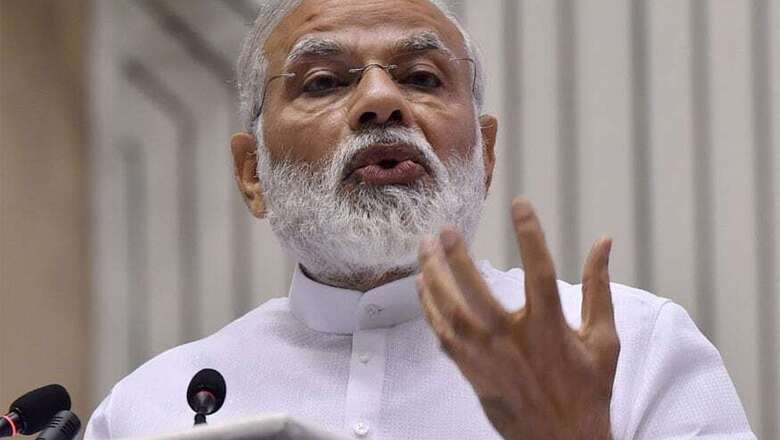
views
New Delhi: Left to take the ultimate call, the Narendra Modi government is in a fix over settling the “final” draft of the Memorandum of Procedure (MoP), which has to guide all future appointments of Supreme Court and high court judges.
In March, the Supreme Court collegium, headed by Chief Justice of India J S Khehar, sent its “final” version of the MoP to the government but the Prime Minister’s Office (PMO) is still to make up its mind and communicate the way forward to the Law Ministry.
The dilemma was triggered by the latest draft, which underlined that the collegium would not make any further changes in it. A note, sent along with the draft MoP to the Union Law Ministry, conveyed it unequivocally that no room for further negotiation was left as far as contentious clauses were concerned and that it was now for the government to take a call.
In the process of finalization of the MoP, this was the third draft forwarded by the collegium to the government since December 2015 when a Constitution Bench held that a new MoP should be framed by the government in consultation with the CJI to usher in more transparency and objectivity in judicial appointments.
But the “final” draft sent by the collegium in March dismissed three significant stipulations by the government, through which the executive was hopeful of getting a say in judicial appointments.
Sources have told CNN-News18 that the collegium discarded the view that the government could have the final word on appointment of a judge when such an appointment could put in peril the “national security”. Even though the collegium accepted to retain the “national security” clause in the MoP, it reserved the right to reiterate a name for appointment despite the government’s objection after which the appointment must go through.
Two other clauses relating to committees for evaluating the candidates for judgeship and for examining the complaints against sitting judges also proved to be contentious, and the collegium’s ultimate draft rejected the government’s proposition to have such committees.
With three of its major proposals turned down by the highest judiciary, the government is yet to decide its future course of action. After the Supreme Court shot down the National Judicial Appointments Commission (NJAC) in October 2015, the message to the Law Ministry from the Prime Minister’s Office (PMO) was clear that the government should not appear to be on a collision course with the judiciary.
Therefore, sources said, the PMO wanted a non-confrontational approach in devising the MoP. It was with this mandate from the PMO that External Affairs Minister Sushma Swaraj — considered to be a soft and more indulgent leader of the ruling dispensation — was requested to head the inter-ministerial group to finalise the MoP.
The impasse, however, continued despite several rounds of deliberation between the inter-ministerial group and the CJI. The “final” draft by the collegium is currently under consideration of the PMO. P K Mishra, Additional Principal Secretary to Prime Minister Modi, has been entrusted with the responsibility to come up with an acceptable formula for the government and the judiciary. The resolution is going to be a tricky affair that will also reflect upon the will of the judiciary and the executive to have a fairly codified and objective procedure for appointing judges in constitutional courts.




















Comments
0 comment